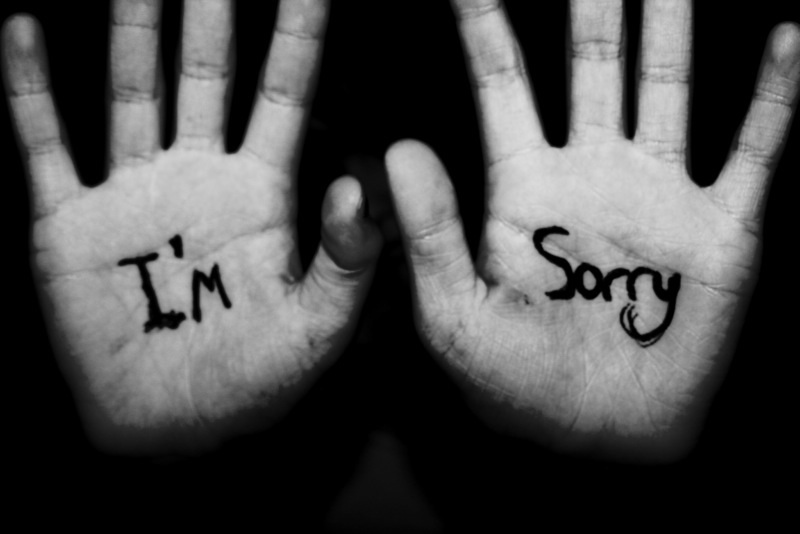Anyone can apologize. Indeed, we all do from time to time. But to do it well — to extinguish the fire rather than re-ignite it — ultimately requires the one thing that even we PR pros can’t fake: sincerity.
For example, last month saw perhaps the biggest mea culpa in the history of environmentalism. Mark Lynas, who helped spearhead the movement against genetically modified foods, recanted and switched sides. “I could not have chosen a more counterproductive path. I now regret it completely,” he confessed to the Oxford Farming Conference. This declaration was courageous and honest.
A few weeks later, the Atlantic atoned for an advertorial on Scientology. “We screwed up,” the magazine emailed its readers. “It shouldn’t have taken a wave of constructive criticism — but it has — to alert us that we’ve made a mistake, possibly several mistakes.” This apology was characterized by frankness, humor, and transparency.
Last week, Maker’s Mark ate crow for almost diluting its bourbon. “While we thought we were doing what’s right, this is your brand — and you told us in large numbers to change our decision,” the distiller wrote on its website. “You spoke. We listened. And we’re sincerely sorry we let you down.” This misstep was praised for its heart, brio, and class.
And yet, as skillfully as these apologies buried the immediate issue, none managed to reframe the conversation, to draw our focus to something different, something positive. For this exploit, we turn to Jesse Jackson Jr., who yesterday pleaded guilty to misusing campaign funds (specifically, conspiracy, false statements, and mail and wire fraud).
This is serious stuff, requiring a serious statement. Fortunately, Jackson has a brilliant lawyer, who on Friday issued the following apology on his client’s behalf:
“Over the course of my life I have come to realize that none of us are immune from our share of shortcomings and human frailties. Still I offer no excuses for my conduct and I fully accept my responsibility for the improper decisions and mistakes I have made. To that end I want to offer my sincerest apologies to my family, my friends and all of my supporters for my errors in judgment and while my journey is not yet complete, it my hope that I am remembered for things that I did right.”
Leave aside the grammatical error (“none of us are” should be “none of us is”), as well as the semantic sloppiness (“all of my supporters” should be “all my supporters”) and lack of commas. The statement is succinct, thoughtful, and shrewd — especially when compared with how the congressman blundered his last spin in the crisis chair. Here’s how Jackson succeeded this time:
1. Speed
He doesn’t delay his response or downplay the incident. Instead, he gets out in front of it. As a result, his statement is included in every news article.
2. Universalization
He begins with a Big Picture reflection that paints himself as an everyman. He says, in effect, “We all make mistakes.” Who among us could disagree?
3. Purity
He doesn’t point fingers or refer to extenuating circumstances. Instead, he embraces his culpability without qualification.
4. Directness
He doesn’t dance around the elephant. Instead, he walks straight up to it and apologizes, directly and earnestly.
5. Nouns
He doesn’t rely on frilly adjectives to make his point. Instead, he writes with nouns.
6. Denouement
He closes by asking people to remember him for the good he’s done, yet refrains from self-indulgently citing examples. This understated, upbeat note thus effectively shifts our final focus.
My only disagreement: Jackson’s misdeeds aren’t mere “errors of judgment,” as he claims. Self-dealing and theft are crimes.
At some point in the near future, you’re going to face the need to say “I’m sorry.” If you offer this apology with genuine sincerity, you’ll transcend the transgression. In a good way, those you offended will remember your cover-up instead of your crime.
If you offer the apology half-heartedly, you’ll be remembered as just another jerk whose cover-up exacerbated the crime.
Some decisions in life are tough. This isn’t one of them.
My ex-girlfriends might tell you that I’m better at offering advice than applying it to myself. Don’t believe them. Instead, judge me by my blog posts, presentations, LinkedIn profile, and Google-plus ones.
A version of this blog post appeared in PR Daily on February 21, 2013 and the PRSA-NCC Blog on February 26, 2013.




